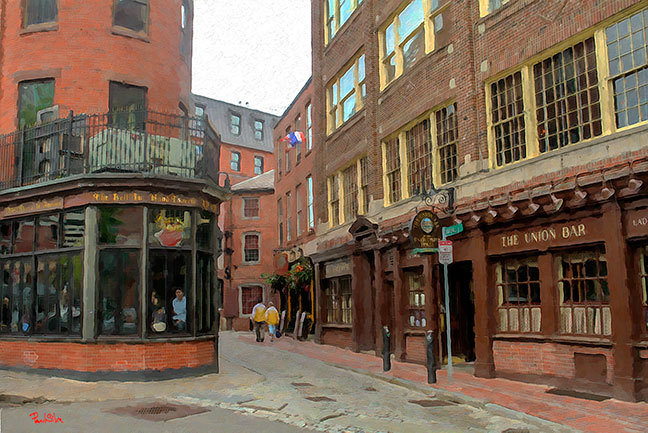FWP:
SETS == STRESS-SHIFTING
WINE: {49,1}
WINE-HOUSE: {33,6}
Like a mushairah verse, this one sets up a piquant, uninterpretable first line. But even when, after a duly suspense-building pause, we get to hear the second line, we still can't put together any one single meaning. It's clear that a strong contrast is intended between the fortunate, non-disappointed beggars of the wineshop street, and all other, ordinary beggars who frequent other streets. But what exactly is the nature of the contrast? Depending on how we shift the stresses on different contrasts with the first line, here are some possibilities:
=Beggars in other streets receive gifts only on Eid.
=Beggars in other streets receive wine only on Eid.
=Beggars in other streets are disappointed because they receive gifts only on Eid.
=Beggars in other streets are disappointed because the gifts they receive on Eid don't include wine.
=Beggars in other streets are disappointed because they receive wine only on Eid.
Isn't this a real tour de force of structure? Such a simple-looking verse, and yet it effortlessly generates-- in fact, it can't be prevented from generating-- so many possible readings.
All the meanings are 'rakish' [rindānah] and full of 'mischievousness' [shoḳhī], because they all favorably contrast the virtue and generosity of the winehouse-keepers and wine-drinkers with that of the pious, dutiful Eid-observers. Some meanings even have the additional fillip of implying that wine is given in charity on Eid (as of course it is not).
There's also the elliptical, suggestive feeling of the second line, with its strong hint of mystical possibilities.

Nazm:
That is, in the world the only real desire and goal is wine; the unsuccessful person is the one who would not obtain wine. The first line is in the tone of a Faqir: 'My friend [bhaʾī], not just Thursday, but other days too, something can be had there'. (111)
== Nazm page 111